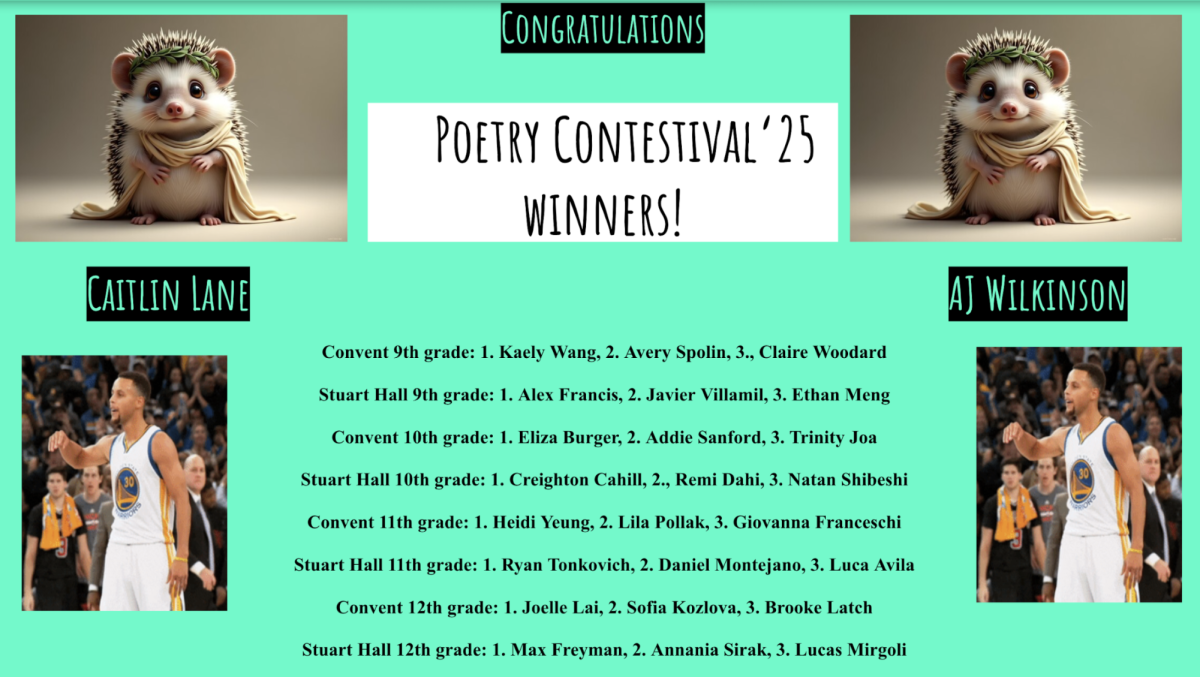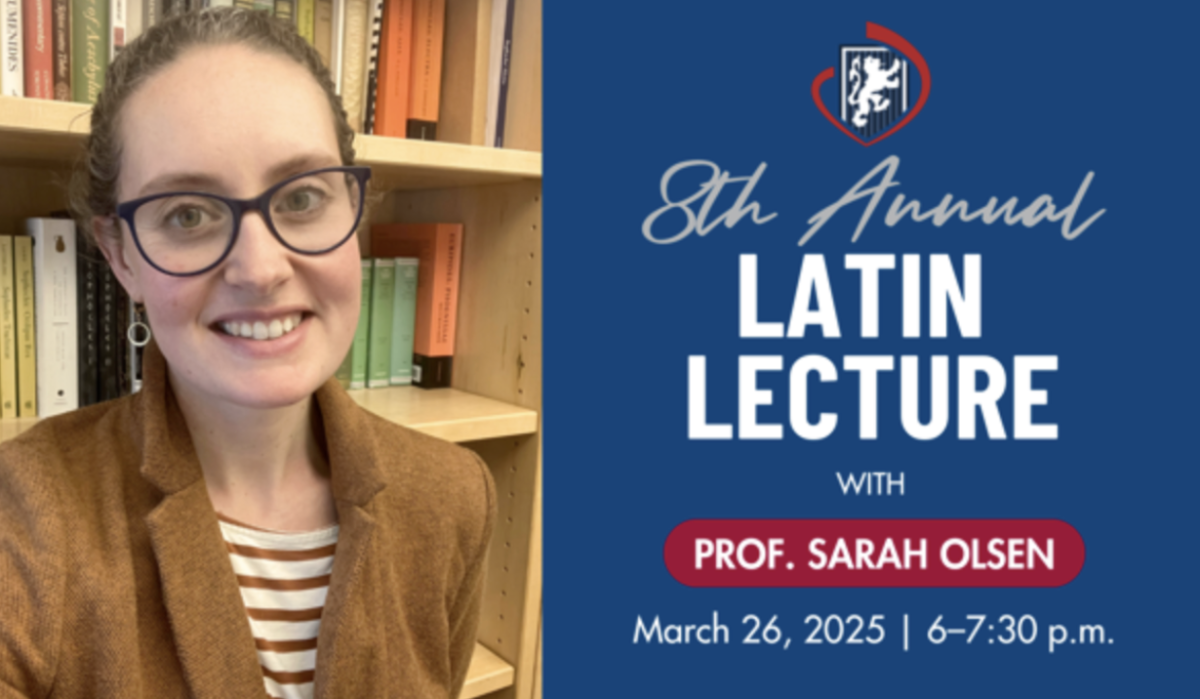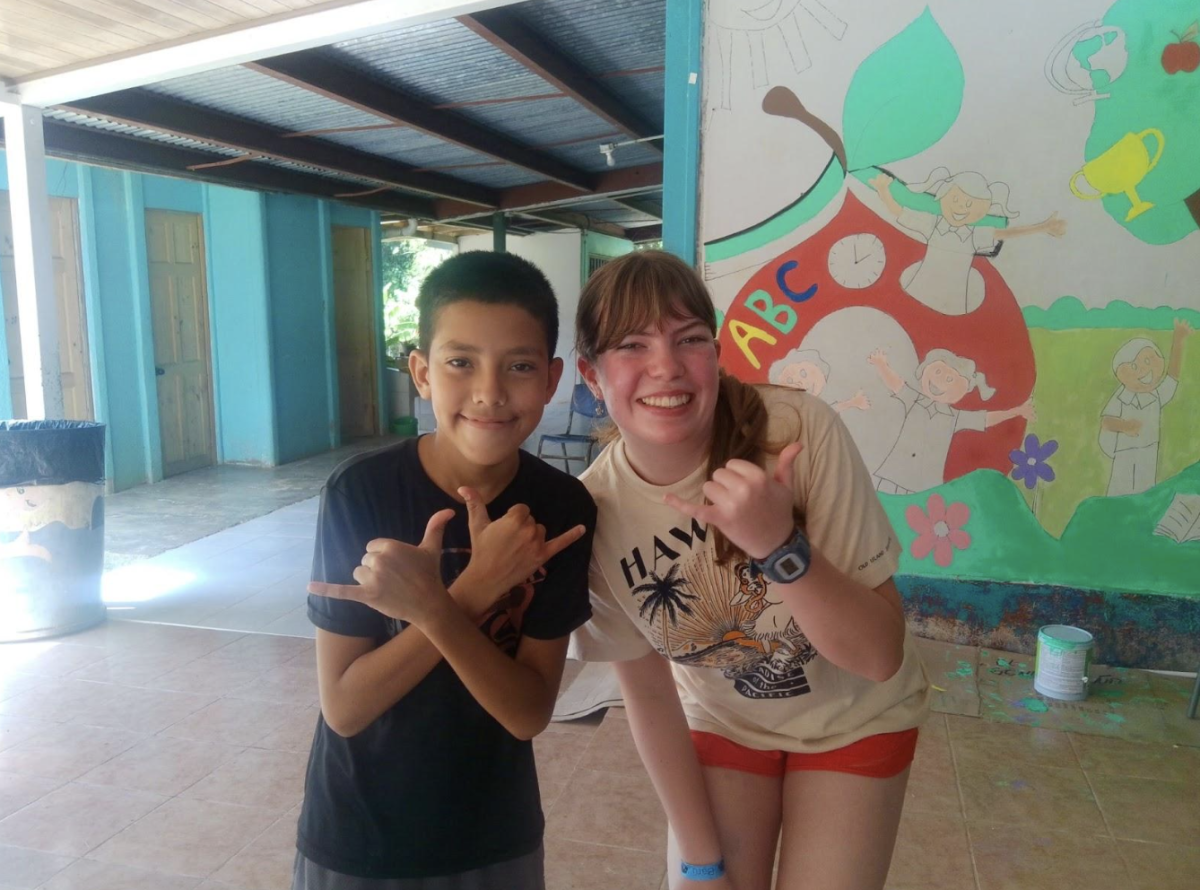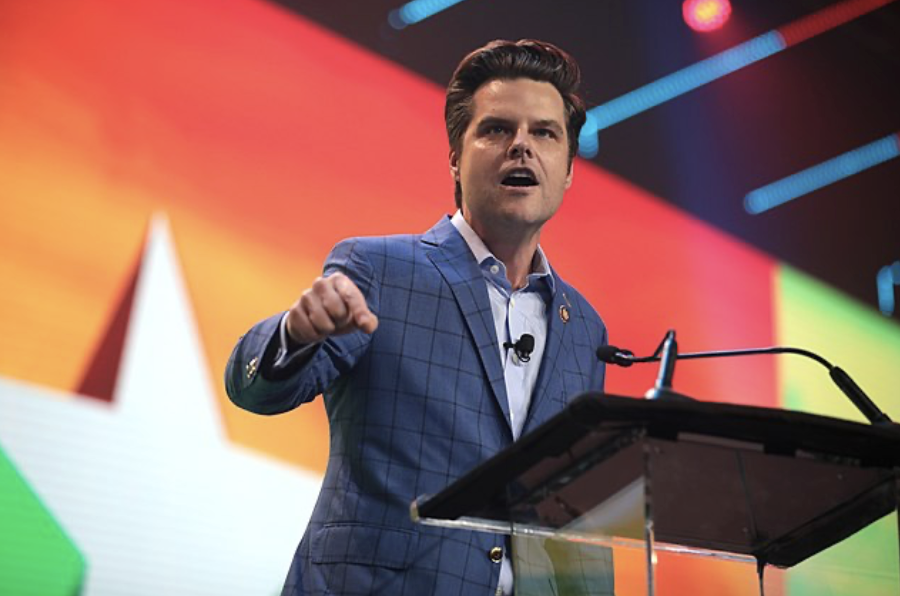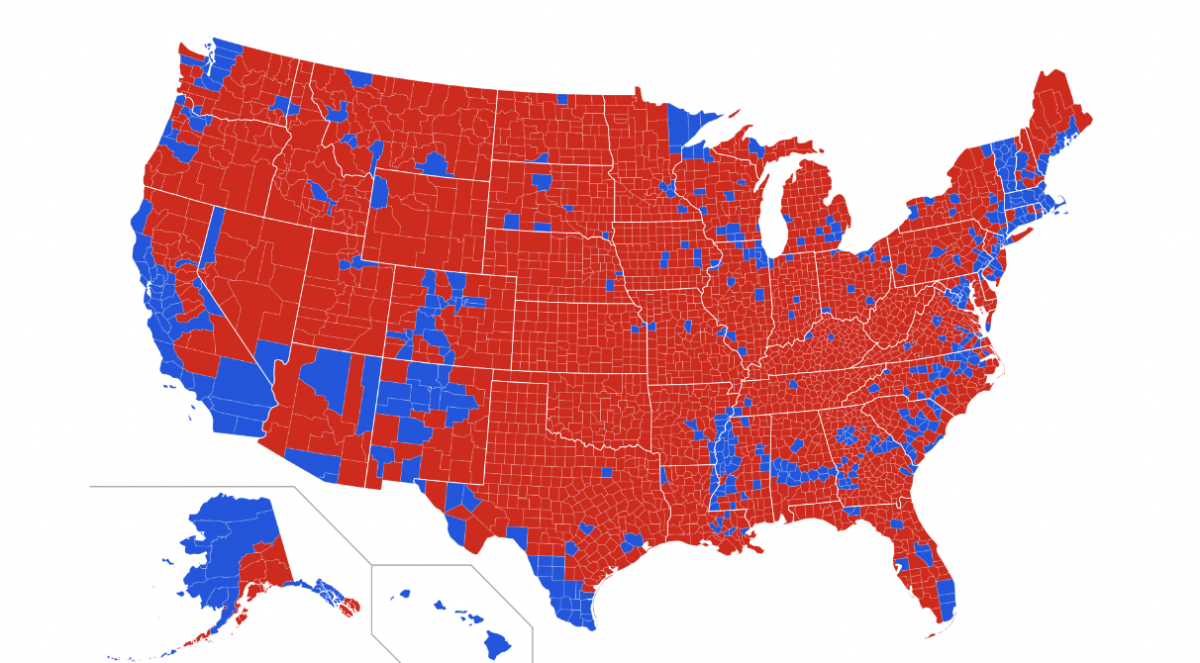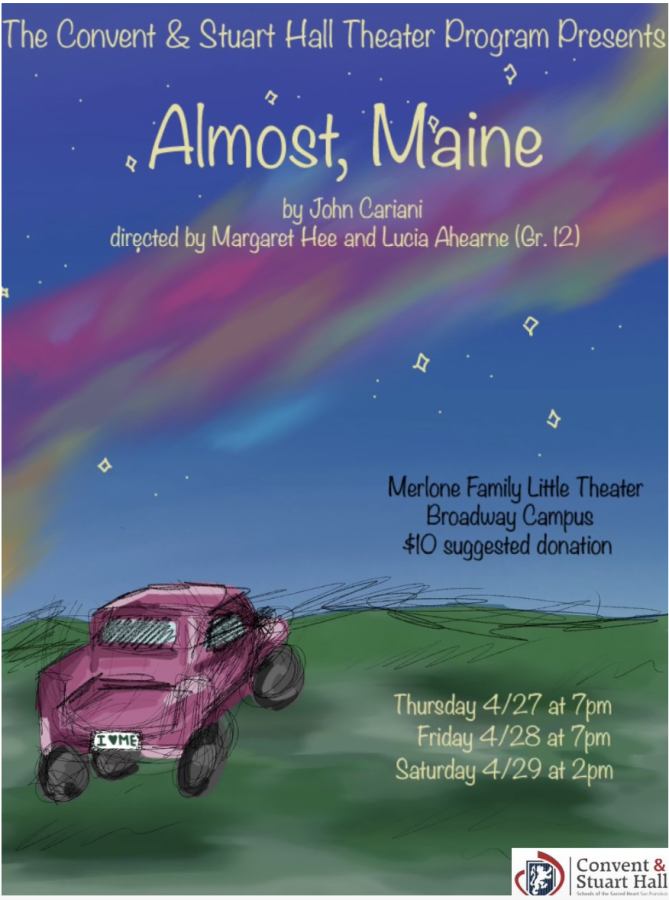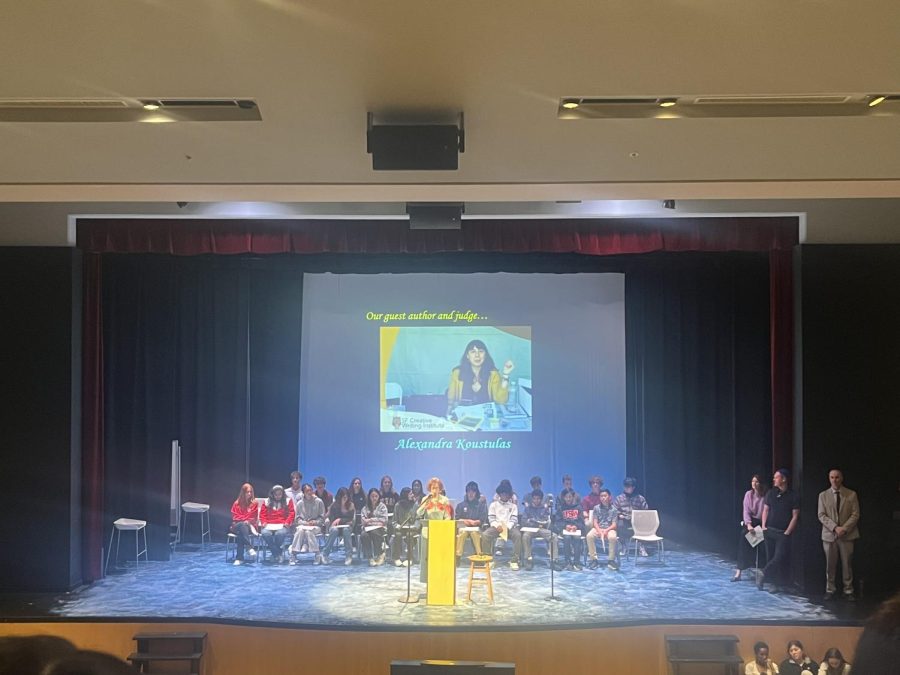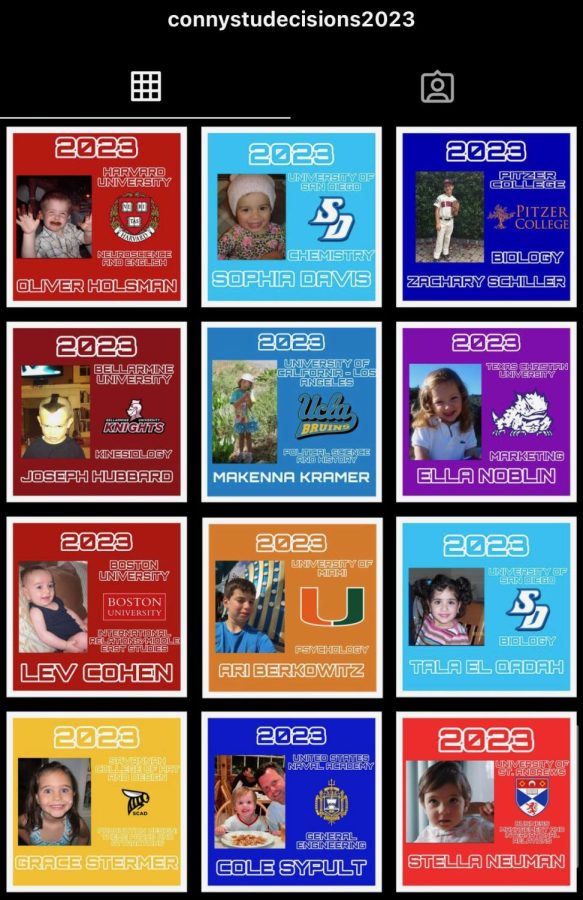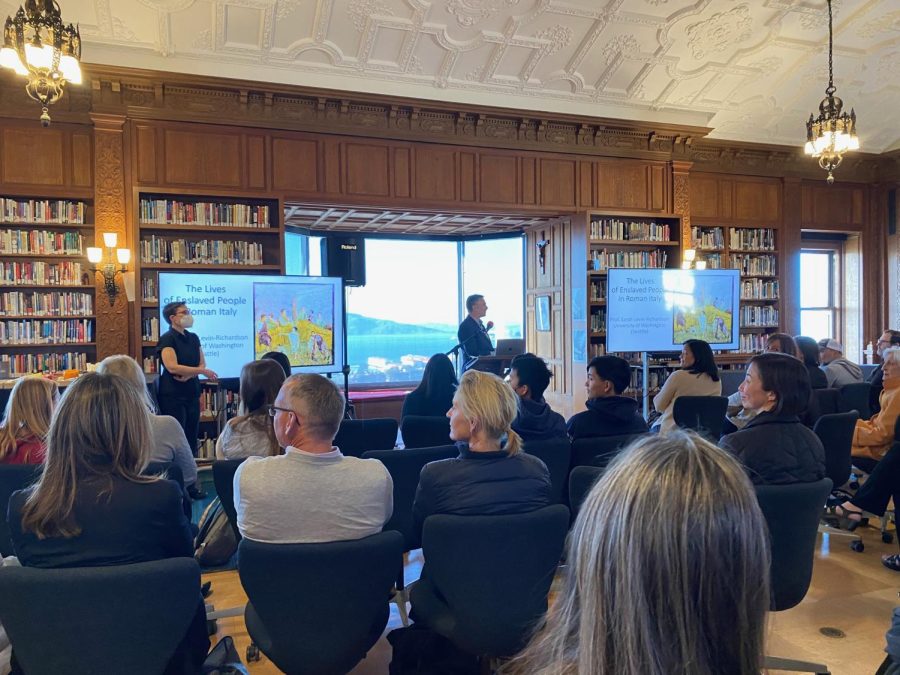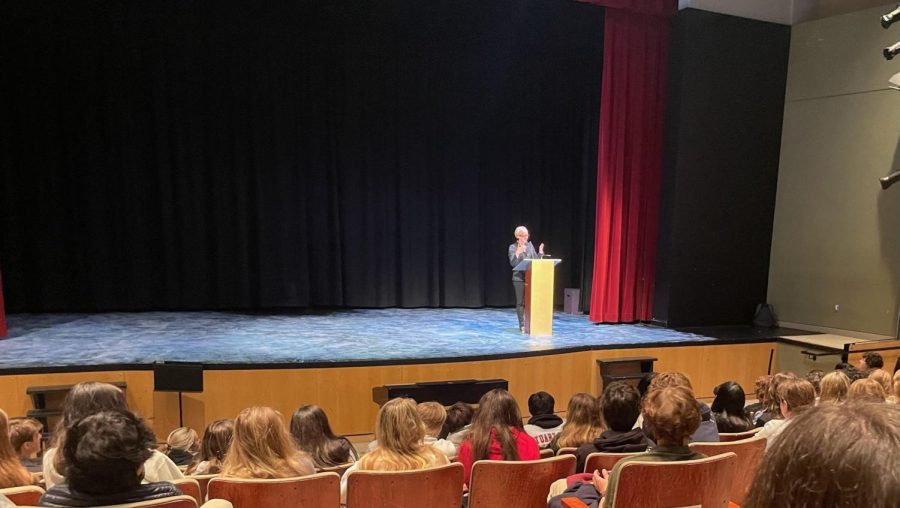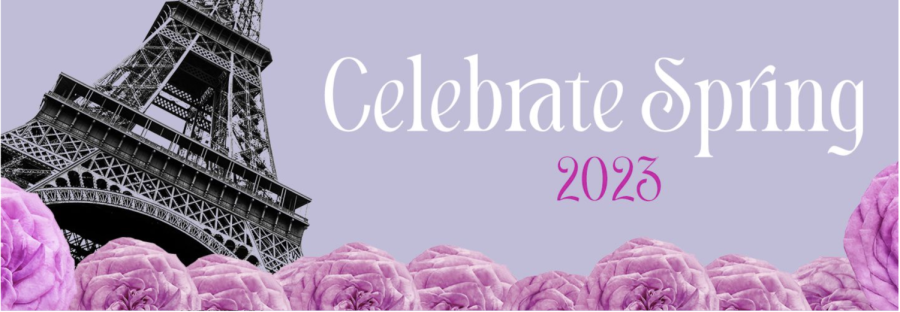Madeleine Ainsle
Design Editor
Thursday’s all-school assembly with Supreme Court plaintiff Mary Beth Tinker reminded students of their rights and responsibilities that come along with practicing free expression and the implications her case has for both public and private school students.
Although “Tinker v. Des Moines” set a precedent for freedom of expression in schools and ruled that students do not “shed their constitutional rights to freedom of speech or expression at the schoolhouse gate,” many private school students are not afforded the same rights as their California public school counterparts.

“Enrolling in a private school entails signing a contract which requires waiving some of the First Amendment rights to free expression,” Lois Schwartz, Senior Lecturer in Law at Hastings College of the Law said.
The First Amendment protects citizens from government control over their religion, speech and the press while also giving citizens the right to protest and enact or repeal laws.
Private schools and the First Amendment
Private school limitations are generally established in handbooks or mission statements, but if a student infringes on those guidelines, the First Amendment cannot act as a “Get out of Jail Free card,” according to Schwartz.
“We willingly let the school infringe on our right to wear certain clothing and say certain things,” sophomore Jill Cardamon said. “We know we have to let go of them in agreeing come here.”
Equally as important as a student’s First Amendment rights is how teachers interact with them according to Moral Philosophy teacher Paul Pryor Lorentz.
“A teacher is supposed to be a guide for students,” Pryor Lorentz said. “It is his or her responsibility to call out students if they are saying something incorrect or derogatory because even though they’re protected by the First Amendment, the goal is for them to be upstanding, well-informed citizens.”
Free speech isn’t beneficial to just the student executing their rights, it also helps the greater good and promotes learning, according to senior Kellie La.
“Regardless of whether we are a private school or not, students should be able to have their basic American rights,” La said. “I don’t think slander against the school should be allowed, but no matter what the school background is, exercising free speech and the First Amendment should be allowed.”
“The First Amendment allows people to share their views with others and to really learn from one another,” Azhar Majeed, Director of the Individual Rights Education Program at FIRE said. “In that process, everybody benefits and people gain more knowledge and understanding while getting a broader range of perspectives.”
FIRE, The Foundation for Individual Rights in Education, informs and defends individual students and faculty members at colleges and universities who have had their individual liberties violated. FIRE especially works to advance individuals’ understanding of those rights.
Practicing rights in school
“Students can’t engage in certain kinds of speech and say that it is equally protected if it is racist or bullying,” Schwartz said. “Just like students can’t bring contraband drugs or weapons and claim that it’s a First Amendment right to have them on campus.”
The amendment, when used respectfully, allows ideas to propagate and spread, but private school students have a second set of rights and rules to respect when they come on campus, according to sophomore Jillian Cardamon.
Through education, the government directs many aspects of students’ daily lives, anything from how many hours in a school day to what constitutes a qualified teacher. Public universities like University of California schools are especially influenced by government decisions.
“Everything from how many credits are needed to graduate, to what standardized tests will be required, to what colleges are going to use affirmative action in their admission are regulated,” Frank LoMonte, Executive Director at the Student Press Law Center said. “Government plays one of the biggest roles in the education of citizens.”
With the freedom that the amendment grants come certain unspoken obligations, according to LoMonte.
“As a citizen, there is a responsibility to participate at some level,” LoMonte said. “In order to be a good, fully functioning part of America’s democracy, people certainly have some responsibility to inform themselves.”
A time and a place for opinion
Responsibility is key to using First Amendment liberties, as is determining the time and place for comments, according to Schwartz.
“It is imperative to look at the setting and examine the forum and the effect the opinion will have on the surrounding people and ensure that is appropriate,” Schwartz said.
The amendment exists to allow people to speak their minds, so there is a duty to protect even those who say things that you disagree with, according to Pryor Lorentz.
“If free speech is to be upheld in a society, it needs to be consistently upheld for everyone,” Pryor Lorentz said. “That includes especially people that voice opinions that are not favorable or that people don’t agree with.”
Because the government does not impose censorship of information, it is often left to the individual to determine what is and isn’t appropriate to print, say and broadcast.
“Knowing that you have a First Amendment right to say something doesn’t mean that it is good judgment to say it,” LoMonte said. “You can say very hurtful and offensive things and the First Amendment legally gives the right to do that, but it doesn’t mean it’s good judgement. That’s where ethics come in.”
Citizens have a right to the truth under the First Amendment, even when that truth isn’t pleasant. The adage, “If you don’t have anything nice to say don’t say anything at all,” is far from applicable, as the question of ethics must be balanced with the public’s right to knowledge and the potential consequences that could ensue, according to Majeed.
“Some people want to push the envelope about everything and anything all the time, even when it’s not worth pushing, which is an irresponsible thing to do,” History Department Chair Dr. Michael Steinbrecher said. “It shouldn’t be the kind of thing where someone goes out and tests its limits just for the sake of seeing how far they can go.”
Free speech and security
The right of personal freedom is one of the greatest and most fundamental rights and something that distinguishes a free society from a totalitarian one, according to Steinbrecher.
“There’s always that balance between security and First Amendment rights,” Steinbrecher said. “There’s free speech, but you can’t yell ‘fire’ in a crowded theater. That’s not free speech it’s abusive.”
Equally as important as not overusing the freedom of speech, is speaking up, even when it may be unpopular, according to LoMonte.
“The right of free expression is really just the starting point, but it often forces people to decide which are the battles to fight and what the priorities are,” LoMonte said. “Some things may be so important that they are worth speaking out about even at great risk. We see people blow the whistle on corruption and scandal at great personal risk to themselves, but that speech is especially important to them and the law allows them to say it.”
The First Amendment often protects whistleblowers, however in cases like that of Edward Snowden where classified information about United States intelligence activities were stolen, the amendment cannot be used to defend such actions.
Snowden leaked classified documents to the press while working as a contractor for the National Security Agency. Among the information released was proof that the NSA had been keeping surveillance of domestic and international telephone and Internet communications, in addition to spying on other governments and allies.
The freedoms guaranteed by the First Amendment allowed reporters to bring the activities of the NSA and Snowden to
public attention, something other governments, many of whom control media, would never have permitted.
“The government was collecting a lot more information on its citizens and other people than Americans knew,” LoMonte said. “It’s possible that some of that goes too far and does intrude on civil liberties.”
Responsibility to be a participatory citizen
In order to have a fair and balanced democracy, students need to be involved in government just as the government is involved in the lives of students, according to LoMonte.
“Students need to have a meaningful voice in government policy and the First Amendment is what lets students do that,” LoMonte said. “Students really have more direct relationships with the government than just about any other citizen.”
The Constitution creates a set of legal boundaries by prohibiting libelist speech, stealing copyright protected property, publishing photos, videos or recorded conversations that invade people’s privacy, according to LoMonte.
“There certainly is the responsibility to use speech in a way that contributes to a meaningful discussion of issues,” LoMonte said. “Weighing the reliability of sources and not passing off rumors as facts is an important obligation whether you’re a professional publisher or you’re just tweeting.”




